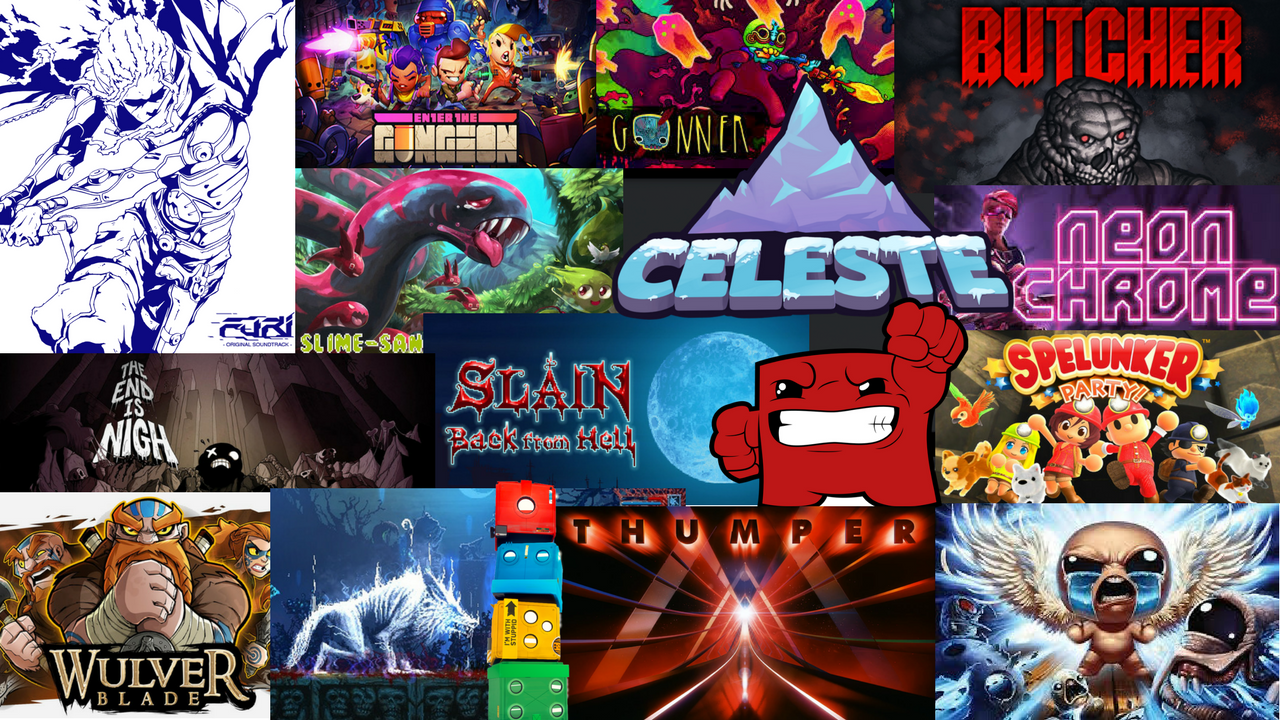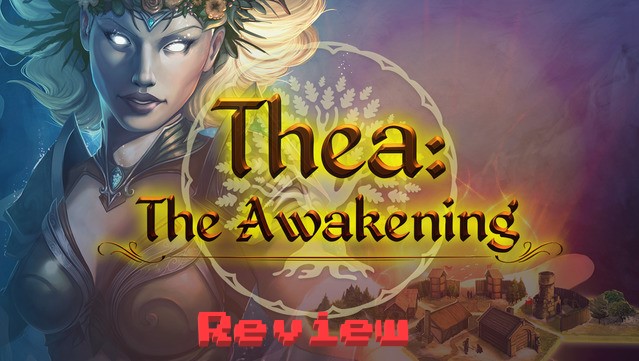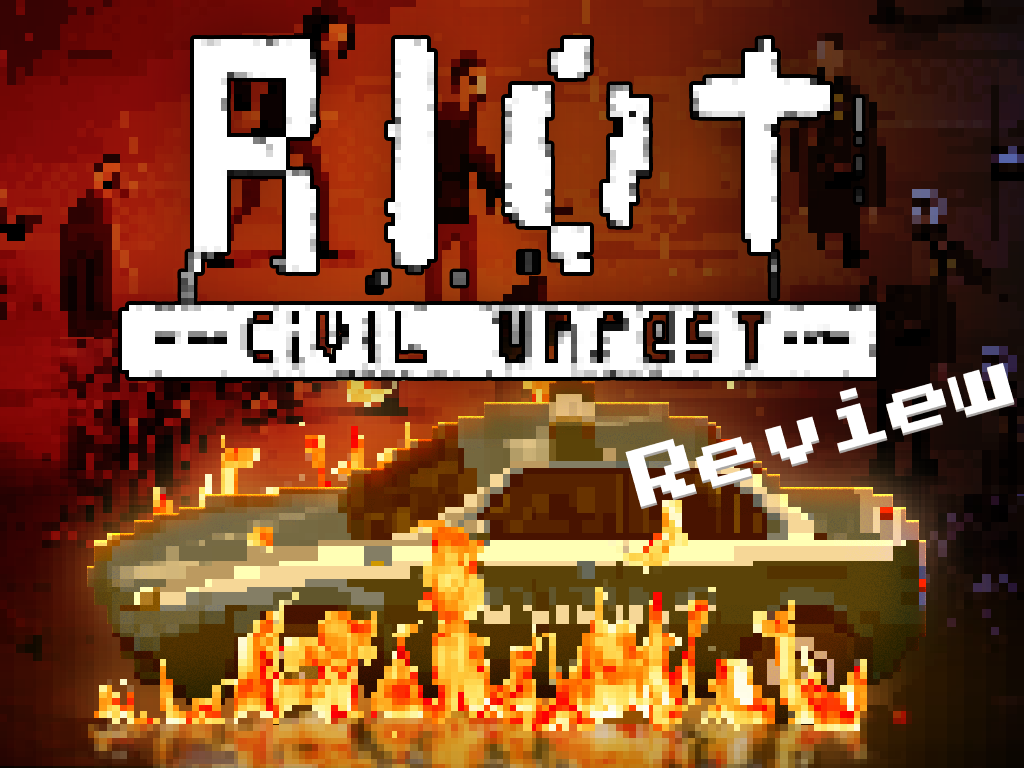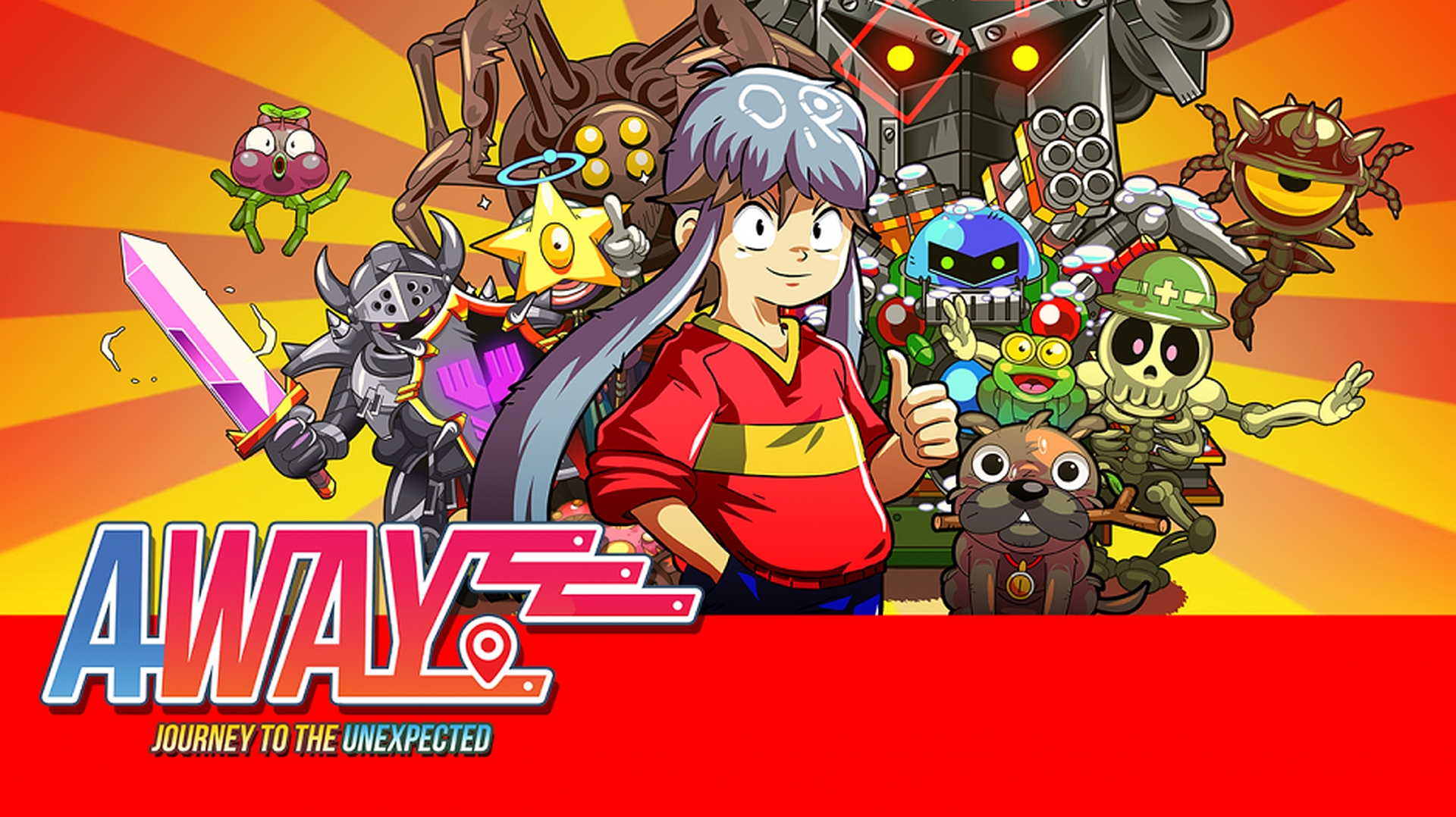Thea: The Awakening Switch Review by SwitchWatch
Developer: MuHa Games
Publisher: Monster Couch
[/et_pb_text][/et_pb_column][et_pb_column type=”1_2″][et_pb_text _builder_version=”3.19.9″]Release Date: Now
Price as of Article: $17.99 USD, £15.99 GBP
Game code provided by Monster Couch
Thea: The Awakening is a tabletop style fantasy adventure adapted for the Nintendo Switch based heavily on Slavic folklore. For anyone who has played fantasy games, the setting and feel will make you right at home. If you are new to it, then it is going to be a learning experience.
The story revolves around your chosen God, trying to reclaim their realm after the cataclysm, caused by the coming Dark Powers, has taken all their abilities. In order to find out the whole story, there will need to be multiple playthroughs with multiple Gods to find out about the world, the back story as well as more random encounters.
Starting Thea: The Awakening
When starting a game you will get the choice of which God you are going to be helping get their power back, depending on the God the player picks there will be a buff related to that God applied to your game. There are 8 Gods to pick from but only two are unlocked to begin with. The rest are unlocked through different playthroughs.
The big thing that you will notice is there are no heroes or armies to command, just a small town that is struggling to survive and helping out their God. For me personally, this was a nice change and makes the game somewhat more personal and makes each fight meaningful as you lose a townsperson, not just a solider.

Thea The Awakening is firstly a 4X strategy game. This basically means: “explore, expand, exploit and exterminate”, as in Sid Meier’s Civilisation type gameplay. This really excited me as I love these types of games and it has been ages since I played one. Naturally, I jumped right in.
After the tutorial and lots of text about how to play the game, you then get hit with another wall of text. Then you will be instructed how to move around the world and get into your first fight – more text on how to play the card game fight. After the tutorial, you are given markers on where to go, plus more text of course! There is a lot of text and this shows different game styles they have incorporated into Thea: a card game, a visual novel and a management sim.
Too Much Is Too Much
Thea The Awakening has a lot of moving parts, but too much is too much. Only the 4X gameplay is fleshed out. It is repetitive but it works. There are random encounters and it does feel good when you take out a big enemy and the party is not killed so you can carry on feeling like a boss.
The fights are done by a card game which you select units and support cards. In the set stage you and your opposition place your cards. In the fight stage, the outcome is decided by the card’s overall attack and defence statistics. That is it! Luckily there is a skip option and it is done automatically, thankfully. There are different ways of completing fights but all boil down to the same thing: the higher statistics.

The resource management involves going to the gathering menu and setting gatherers in the town to find the currently available products that the town is able to gather, then at the end of each turn, the town gains a set amount of food. This works, in turn, the same way with resources for building. Then, to complete building activities for the town you select a builder(s) and set them on a task that is available. Again, a little lacklustre.
The visual novel section for myself was the lazy part of the game, yes it is narrated but the voice actors voice grated on my nerves after a while. Then there where the static pictures. They are lovely but there could have been some 3D rendering in these parts to make them more entertaining. Once the wall of text has been read you will normally get a choice of what to do, that could lead to another wall of text. It starts to get laborious after a few hours of reading in different parts. After the text wall, you will get research points.
The crafting system is the best part of the game. You get different materials or foods, and you are able to combine these to make more potent items, like medicine, meals and different buildings to name a few. Most of the things will have a recipe for and will have more than one way to make the item and, depending on how the materials and foods are combined, will depend on what is made and its overall usage. In order to make more complex items, the town will need to amass research point to unlock new recipes. There is plenty to craft with around 4400 different items to make.

Pure Chance
After a few hours, I started to notice something happening as I was playing. It started to feel like the game was playing by its own rules. I had a fully equipped team of 7 people just around the starting area, and a random event happened. I was attacked by a bloody dragon which wiped out my full team. I reloaded my save after some time and another encounter happened; it was 3 spiders, simple enough. Another few turns later, 3 wolves killed 5 of my team. It dawned on me that Thea: The Awakening has a major problem. It does not matter how well you are playing, the game is down to pure chance.
I understand this is a rogue-like and that you need to be careful and it should be hard, but most rogue-likes are hard mainly by the player not doing what they were meant to. This is not even the player’s fault, it is how unlucky your RNG was. From a gameplay perspective this made an already slow game even slower and, on top of that, it meant that progression was pointless. If a game is designed well and it is more down to the player that they die I do not have a problem with games being hard, but when it is poorly designed like this it is just lazy work.
Finally

Thea: The Awakening had a good idea with 4X gameplay but with extra elements in the mix and, on paper, it sounds amazing and I was excited to play it. Then I did play it and that excitement went away like a dragon wiping out my team. When a game is up to chance and not my actions it loses all of its fun. Add in the fact most parts seemed to be tacked on, then, in the end, it felt like the developers got fed up or lost interest in what they were doing and decided not to put any more effort into it.
I know I have been fairly negative but some things I enjoyed such as the crafting, its one of the best systems I have seen in a game for a long time. The random encounters, they were not something the devil would think of, were actually entertaining and fun.
[/et_pb_toggle][et_pb_code _builder_version=”3.17.6″] style=”display:block; text-align:center;” data-ad-layout=”in-article” data-ad-format=”fluid” data-ad-client=”ca-pub-5661714653949151″ data-ad-slot=”5669732186″>[/et_pb_code][et_pb_toggle title=”Audio” open=”on” _builder_version=”3.19.9″ use_border_color=”on”]The music is fitting for a fantasy game as it makes you feel as though you are in a mythical land on some grand adventure. Even though I got that feeling, the music is nothing to write home about.
In fact, that is the same with the voice acting. There is a fair amount of it, same with the effect sounds. Nothing stands out and I can’t bring to mind any of the soundtrack.
The audio is lacking in all aspects.
The visuals come in two distinct looks, firstly and maybe the most impressive is the hand-drawn cards and pictures, there are a lot! These just remind me of playing a tabletop RPG card game until the small hours of the next day with my friends. The card pictures are well-drawn, characters and monster are all detailed and crisp. The pictures that pop up with dialogue choices are done in the classic paint style of tabletop RPGs. As well as the choices and cards, all the upgrade tabs in the menus are hand drawn too.
The overworld that is computer generated does not seem to have had as much effort put into it as the hand-drawn stuff. I am not saying that it looks bad by any means but it seems to be lacking the attention to detail that the other stuff has. It is easy to distinguish what area you are standing in, a forest or on a mountain but it’s not as detailed, it will make you feel like you are in a fantasy game but it just needed a bit more care.
As for performance I only played this in handheld mode as it gives me that sense of nostalgia. There were not too many issues aside from some long loading times and, in a game that’s slow-paced, it is a problem. Apart from that everything else seemed fine.
[/et_pb_toggle][et_pb_toggle title=”Value” open=”on” _builder_version=”3.19.9″ use_border_color=”on”]Coming in at a modest $17.99 USD, £15.99 GBP, Thea: The Awakening is going to split the community in my opinion. For people who like slow-paced tactical games, it is definitely worth the price, as there is plenty to do. If you are not too sure, it is overpriced.
Pros
[/et_pb_text][et_pb_blurb use_icon=”on” font_icon=”%%47%%” icon_color=”#ffffff” use_circle=”on” circle_color=”#5bd999″ icon_placement=”left” _builder_version=”3.19.9″]A good crafting system
[/et_pb_blurb][et_pb_blurb use_icon=”on” font_icon=”%%47%%” icon_color=”#ffffff” use_circle=”on” circle_color=”#5bd999″ icon_placement=”left” _builder_version=”3.19.9″]Loads of items
Some entertaining moments
[/et_pb_blurb][/et_pb_column][et_pb_column type=”1_2″][et_pb_text _builder_version=”3.0.95″]Cons
[/et_pb_text][et_pb_blurb use_icon=”on” font_icon=”%%47%%” icon_color=”#ffffff” use_circle=”on” circle_color=”#e6567a” icon_placement=”left” _builder_version=”3.19.9″]The game is down to RNG
Most of the game seemed tacked on
[/et_pb_blurb][et_pb_blurb use_icon=”on” font_icon=”%%47%%” icon_color=”#ffffff” use_circle=”on” circle_color=”#e6567a” icon_placement=”left” _builder_version=”3.19.9″]Hard and it’s not your fault
Slow
[/et_pb_blurb][/et_pb_column][/et_pb_row][/et_pb_section]









